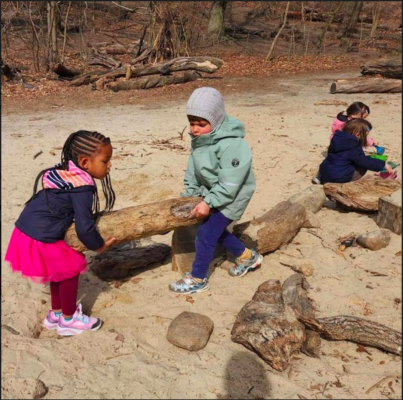Kindergarten: KinderHaus offers a state equivalent Kindergarten program based on the New York State Department of Education learning standards. The program complements the full immersion approach of the KinderHaus Preschool and Pre-K classes with a German-English bilingual curriculum for children from 5 to 6 years of age, to ensure continuity with the instruction in the early New York State elementary grades. Drawing on substantial research, KinderHaus implements a model of bilingual education that is based on the concept of dual immersion and which has been proven to be highly effective and supportive of both the linguistic and cognitive development of children. The dual language immersion program is designed for children with German as either a first or second language, with the goal to learn two languages without one language replacing the other. The program is led by a certified Kindergarten teacher, who is a native German and a fluent English speaker.Â
learning standards. The program complements the full immersion approach of the KinderHaus Preschool and Pre-K classes with a German-English bilingual curriculum for children from 5 to 6 years of age, to ensure continuity with the instruction in the early New York State elementary grades. Drawing on substantial research, KinderHaus implements a model of bilingual education that is based on the concept of dual immersion and which has been proven to be highly effective and supportive of both the linguistic and cognitive development of children. The dual language immersion program is designed for children with German as either a first or second language, with the goal to learn two languages without one language replacing the other. The program is led by a certified Kindergarten teacher, who is a native German and a fluent English speaker.Â
The Kindergarten program entails academic concepts such as literacy, science, mathematics, movement, artistic and musical activities. Our goal is for children to develop essential skills that build the foundation for lifelong learning within positive social and emotional experiences. Our students will experience minimal work sheet activities combined various activities including extended outdoor time throughout the day. The Kindergarten program will facilitate learning using children’s natural curiosity, imagination and thinking skills. The KinderHaus Kindergarten curriculum is designed to achieve a child’s maximum growth as a learner in order to be well prepared for 1st Grade of either an American or German elementary school. In addition to acquiring the skill set of the NYSDE Kindergarten learning standards, KinderHaus students regularly achieve above-average levels of academic proficiency due to the benefits of growing up and learning in a bilingual environment.Â
Sign up for our Newsletter to stay updated on everything about KinderHaus.
The program is led by a team of two certified Kindergarten teachers, one of whom is a native German and the other a native English speaker.
Our Kindergarten program provides a range of benefits over and above non-bilingual Kindergarten programs through the connection of our native speaking German teachers and native speaking English teachers. The new program entails academic concepts such as literacy, science, mathematics, movement, artistic and musical activities. Our goal is for children to develop essential skills that build the foundation for lifelong learning within positive social and emotional experiences. Our students will experience little homework and minimal exams with grading, combined with various activities throughout the day. The Kindergarten Program will facilitate learning using children’s natural curiosity, imagination and thinking skills.
The KinderHaus Kindergarten curriculum is designed to achieve a child’s maximum growth as a learner in order to be well prepared for 1st Grade of either an American or German elementary school. In addition to acquiring the skill set of the NYSDE Kindergarten learning standards, KinderHaus students regularly achieve above-average levels of academic proficiency due to the benefits of growing up and learning in a bilingual environment.Â
Science
The KinderHaus curriculum incorporates the best of German and American approaches of teaching science and world knowledge to children.
All themes are taught in interdisciplinary units, meaning that students are introduced to subject content from different perspectives, including connections to language arts, math, fine arts and music. This approach enables them to become more involved in their own learning process and to develop a range of different skills, as well as to build up a wide vocabulary in both German and English.
Art and Movements
Another integral part of the KinderHaus Kindergarten curriculum is singing German and English songs as well as listening to and making music. While many songs are part of meaningful classroom routines, such as a good morning, goodbye or circle time song, children also learn songs matching seasons and curriculum themes, enjoy rhythm and dancing activities with the group and are encouraged to get to know different instruments and artists. Integrated with music and Kindergarten learning objectives, the physical education program includes fun movement, dance, body awareness and motor skills activities.
